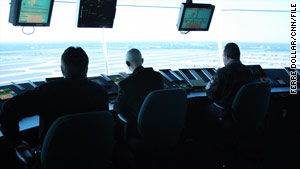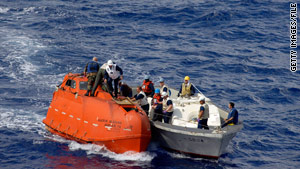MOSCOW, (RIA Novosti - 17:30,,,18/11/2009 )
Moscow tries to maneuver between United States and Iran / Russia must reconsider APEC role / Gazprom warns foreign partners of environmental risks in Shtokman project / Russian drug enforcement official starts a blog
RBC Daily
Moscow tries to maneuver between United States and Iran
The future for the Russian-Iranian relationship is becoming steadily bleaker, now that Moscow and Washington have reset their relations.
Russian President Dmitry Medvedev is hinting that Moscow could support sanctions against Tehran.
The Bushehr nuclear power plant project and the delivery of S-300PMU Favorit (SA-20 Gargoyle) surface-to-air missile systems to Iran are falling behind schedule.
All this seriously undermines Tehran's trust in Moscow.
The United States has decided not to deploy missile-defense system components in Europe. Moscow and Washington have also merged their positions on the new START treaty.
All this indicates that Russia is ready to renounce its neutral stand on the Iranian issue and to completely side with the West, said Radzhab Safarov, general director of the Moscow-based Center for Contemporary Iranian Studies.
He believes Moscow and Washington have struck a bargain.
Officials in Moscow maintain that any allegations that Russia has "abandoned" Iran are far-fetched.
"There is no link between talks on the Iranian nuclear program and construction of the Iranian nuclear power plant. This is not a politically motivated issue. Only technical issues are being settled," Russian Foreign Minister Sergei Lavrov said on Tuesday.
It is still too early to say that Moscow has abandoned Iran, said Alexander Sotnichenko, a leading analyst with the St. Petersburg Center for Middle East Studies.
"Moscow is trying to maneuver between the United States and Iran, as it sends out contradictory messages, delays making the final decision and is afraid to side with either party in order to avoid antagonizing the other. However, both Iran and the West are already tired of waiting for Russia to clarify its stand," the analyst said.
Nezavisimaya Gazeta
Russia must reconsider APEC role
The APEC summit in Singapore has shown that time is running out for a Europe-centered world; new trends are generating a range of new issues and require that Moscow reconsider the role of this forum, traditionally seen as a tool to attract investment to Siberia and the Far East, an analyst writes.
Dr. Alexei Fenenko from Russia's Institute for International Security Studies says it is high time we consider a comprehensive foreign-policy strategy in the Asia-Pacific Region.
APEC's growing focus on the environment requires a shift in the region's energy balance. In 2007, this led to growing tensions between the United States and China, as the latter refused to reduce its use of coal. Potentially, this problem could affect Russia, too, the analyst writes. Moscow is planning to boost supplies of energy resources to East Asia. The discussion of this issue within the APEC format could theoretically block several large investment projects, he adds.
APEC's strategic goal, foreign trade liberalization, will weaken the customs regulation system. It will be more difficult to control commodity flow toward Russia's Far East. The government will find it harder to implement its protectionist policies to stimulate the national auto or steel industries. Federal control of migration and border crossing will also become weaker, Dr. Fenenko suggests.
While supporting integration projects in the Asia-Pacific region, Russia should still take some precautions to preserve control of its Far Eastern regions. Two-thirds of the country's landmass and the bulk of its mineral resources are located in Asia. However, these issues so far remain on the margins of public discussion. This shortage of attention to Asia-Pacific problems is causing serious concern. Officials in Russia seem to be busier with the dismantled Berlin wall or Russian-Polish relations, the analyst writes. So is the general public ready to view Russia as a major Pacific power?
Gazeta.ru
Gazprom warns foreign partners of environmental risks in Shtokman project
Russian energy monopoly Gazprom has warned that development of the Shtokman field may upset the natural balance of the Barents Sea and hurt indigenous wildlife, the environment and human activity. This openness, according to analysts, is due to the participation of foreign companies in the project.
A review prepared by Gazprom assessing the impact of Shtokman development on the environment and social sphere speaks of the serious risks involved.
"Environmental issues are very important for international investors; this is established global practice. Gazprom, by focusing on these issues, shows its share of concern," says Dmitry Alexandrov, an analyst with Univer Management Company. "Besides, thoroughly planned environmental programs will invite more money for nature protection projects, equipment, etc. Such projects are usually very expensive and could encourage any amount of money for the protection of, say, fish."
Experience suggests that environmental issues should not be ignored. A good example is the Eastern Siberia-Pacific Ocean oil pipeline. When it was being laid, some environmental issues were being ignored, causing environmentalists to raise hell. The pipeline had to be rerouted, resulting in extra cost. Another example is the foreign investors that worked with Sakhalin II. They simply lost control of the project and had to sell their controlling stake to Gazprom because Russia's federal environmental regulator (Rosprirodnadzor) kept meddling with checks and inspections. However, analysts believe it was politics rather than the environment that played the key role. On the other hand, Sakhalin II shows that environmental demands may be a powerful weapon.
The Shtokman field is located in the central part of the Russian shelf in the Barents Sea. Its reserves amount to 3.8 trillion cubic meters of gas and about 37 million tons of gas condensate. The deposit will be tapped for gas to be piped or supplied as LNG to Atlantic markets. The monopoly owns 51% of the project, with Total and StatoilHydro controlling the remaining 25% and 24%, respectively.
Kommersant
Russian drug enforcement official starts a blog
Viktor Ivanov, head of Russia's Federal Drug Control Service, has started a blog on livejournal.com and invited everyone to contribute to drafting a national drug enforcement strategy. He says all comments will be considered, but even his colleagues are skeptical.
"It is good that the service has invited public opinion," said Yevgeny Roizman, the founder of the City Without Drugs foundation. "But everyone, including Mr. Ivanov, knows what we must do: introduce a strict visa review process for drug-producing countries like Tajikistan, approve tough punishment (including life imprisonment) for drug dealing, enforce compulsory treatment of drug addicts and launch an anti-drug media campaign."
"We pinned big hopes on the Drug Control Service, which has not justified all of them. This is probably why Mr. Ivanov has decided to appeal to the more active and better thinking part of population," Roizman said.
Alexander Mikhailov, head of a center studying contemporary drug policies and a former deputy head of the Drug Control Service, said nothing had changed in the service's policy.
The service has appealed to the public several times, "but received no reasonable proposals even though it had funds for projects," Mikhail said. "Half of the respondents demanded capital punishment [for drug dealing], while the other half called for legalizing drugs."
Askar Tuganbayev, head of Internet projects at the VGTRK state radio and television broadcasting company, said Ivanov's blog reminded him of the blog started by President Dmitry Medvedev, who makes video addresses and ended his "Forward, Russia" article with an invitation to send modernization ideas to him personally.
This is not drug enforcement but politics, Tuganbayev said.
"Officials start video blogs and become interested in personal fulfillment in the media when they have problems at the office," Tuganbayev said. "When an official strives to become a public figure, it indicates he or she either plans to get a new job or has been tipped off about a superior's dissatisfaction."
RIA Novosti is not responsible for the content of outside sources.










